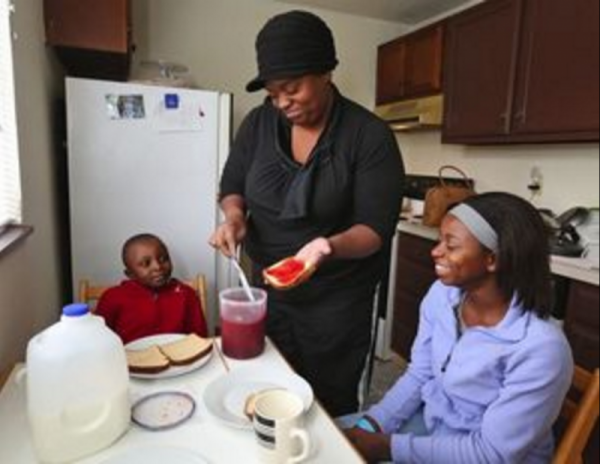Luatonya had bad credit and a couple of evictions on her record. Even though she had the income to afford an apartment, she couldn’t find a landlord who would rent to her. For about a year, she and her two children bounced in and out of homelessness.
Then she connected with the Landlord Liaison Project (LLP), a program that provides safeguards for landlords who rent to people with barriers such as a past eviction, criminal background, or bad credit. LLP convinced a landlord in Kent to look beyond standard screening criteria, and Luatonya’s family now has a stable home.
LLP receives funding from real estate document recording fees, the single biggest source of state support for homeless housing and services. They fund investments in homelessness services including:
- Domestic violence shelters
- Youth and young adult shelters and outreach services
- Rental assistance
- Move-in assistance, like deposits and tenant screening fees
- Permanent Supportive Housing Services
Of the $58 current fee, $30 is set to sunset in June 2019. That would mean these vital programs losing more than $70 million each year in funding.
Homelessness disproportionately affects communities of color. For example, 35,511 Washington school children experienced homelessness in the 2014-15 school year, but African American, American Indian, and Latino students were two to three times more likely to be homeless. Document recording fees are a crucial funding source for shelters and outreach services needed to ensure that our statewide investments in education are accessible for all students experiencing homelessness.
